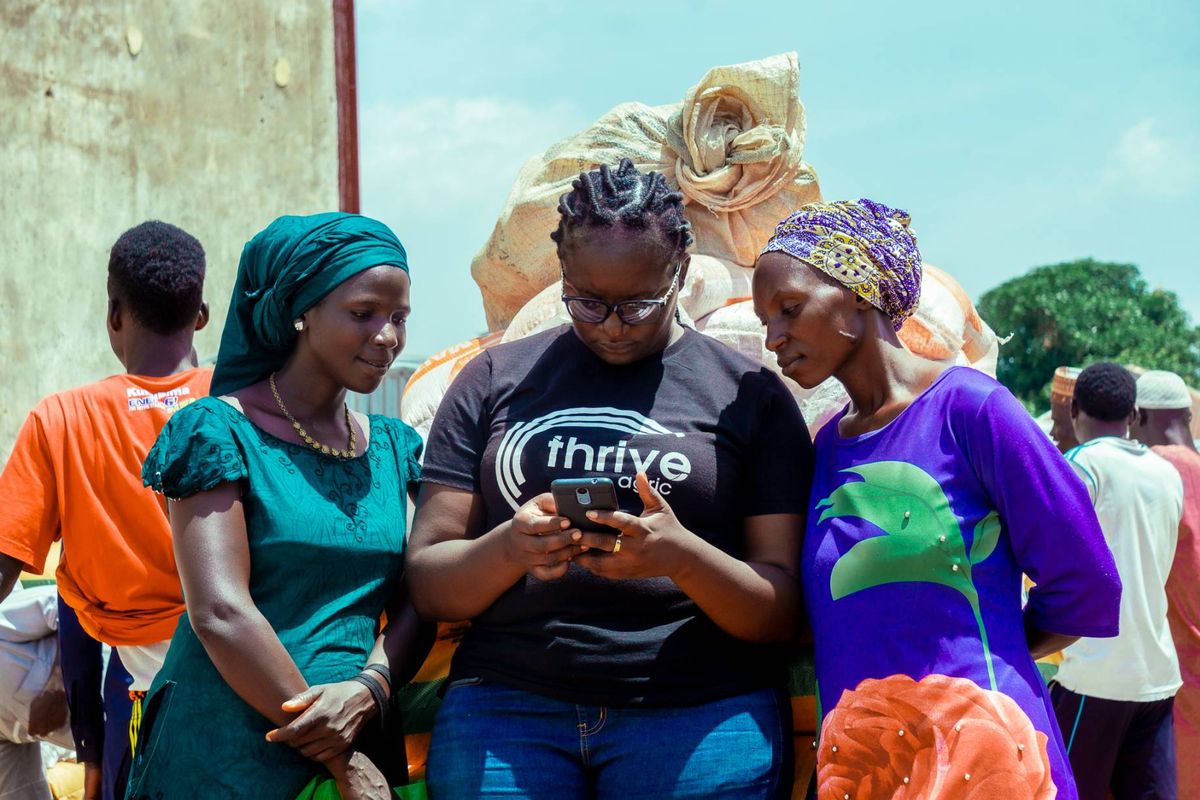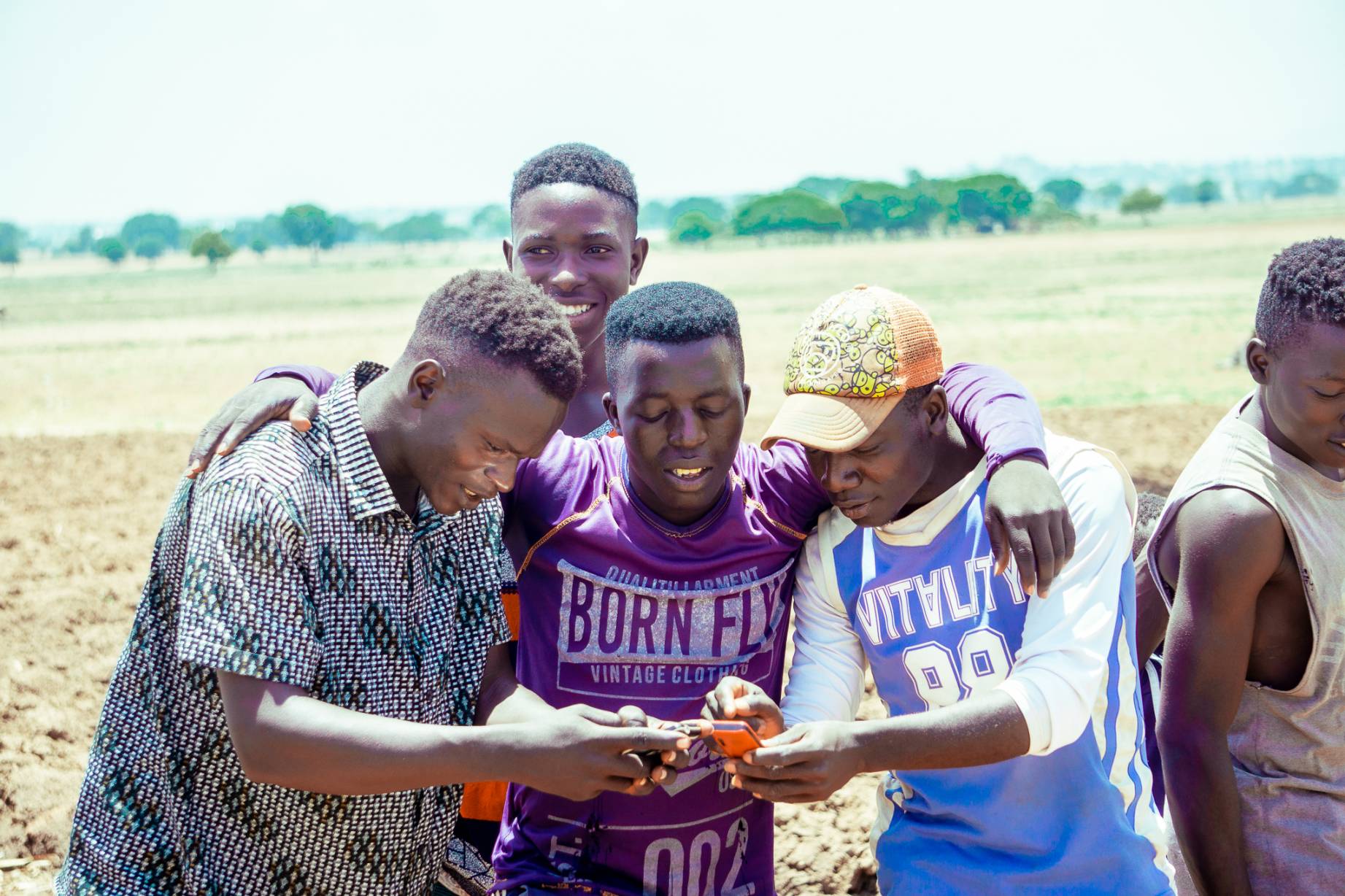Thrive Agric pauses crowdfunding, doubles down on building tech to support agriculture.
Agritech platform, Thrive Agric, has stopped crowdfunding from retail investors, as it focuses on building technology solutions for its agriculture business

Thrive Agric completed its repayment to retail investors (crowdfunders) in April 2021, after COVID-19 induced delays. Now, they will double down on technology to build the largest network of farmers across Africa.
In 2019, when YC invested in Thrive Agric, it was clear that there was more to the conversation than "crowdfunding for Agriculture". The company, which has as its motto, "Enabling Agriculture," has always been bold about its aim of empowering farmers across Africa with access to inputs finance, data driven advisory and access to premium markets where farmers can get the best price for their produce. .
Initially, Thrive Agric's operating model focused on solving three problems for farmers:
- limited access to capital
- Limited access to extension services
- limited access to distribution (market)
The company started solving the problem of capital by crowdfunding from individuals (mostly, urban, middle-class Nigerians) and giving microloans, among other things, to farmers. “We usually give loans to farmers in the form of inputs like seeds and agrochemicals, for which they pay back. They don’t pay back with cash, they pay back with commodities,” said Uka Eje, Thrive Agric's CEO and Co-founder, as he explained the way the company's service worked to Benjamindada.com.
For the distribution end of the problem, it connected farmers with agro-based manufacturers who bought the farm produce for use as raw materials and then process them into finished products
To solve all these challenges, the company has had to build a number of tech products. First, it Agric needed a way to raise funds from retail investors. Then, a way to onboard farmers, and monitor farm operations. Finally, it needed to figure out a way to help the farmers sell their produce upon harvest.
The company developed what it refers to as an Agricultural Operating System (AOS) to help improve efficiency in its processes. The robust system helps Thrive Agric handle the following:
- Mapping farmers lands,
- Onboarding farmers,
- Recording farm visitations,
- Monitoring progress of the farms in real-time,
- Data gathering at the point of harvest, and
- Inventory management
So far, over 140,000 farmers have been onboarded to Thrive Agric's AOS. The company's focus, Uka says, is to build the largest network of farmers across Africa. Right now, the company has set its sights on 100,000 additional farmers to be onboarded before the end of 2021.
Building financial inclusion and commerce networks for farmers
The AOS was just the first step in Thrive's journey in building and providing tech solutions for farmers. After introducing its earlier solutions to farmers, Thrive Agric recognised more challenges farmers were facing and gaps in the Agriculture value chain and decided to take these challenges on with the primary goal of creating more solutions for farmers using Tech. .

Thrive Agric's reputation within the local farming communities had so soared that farmers would bring excess produce to Thrive to help with selling them.
“A Thrive Agric farmer who is funded with inputs for his entire farmland usually harvests more more that the amount to repay for his loan, for instance He is expected to pay back 20 bags," Uka said to Benjamindada.com, "But he has 60 bags and wants us to buy from them because of the access to profitable market the platform provides for them.”
Thrive Agric embarked on a mission to create tailored-solutions to these problems. That mission has resulted in projects like Tradr, a platform that links farmers to seeds and other input providers and farm machinery services and Tmoni, a platform that addresses the financial inclusion needs of the farmers. It is a savings platform which the farmers can leverage for cash transfers, cash receipts and savings all tailored for the smallholder community.
Both projects are currently being beta-tested but should be available for public access in a few weeks.
Leaving retail financing for commercial
Thrive Agric started diversifying its portfolio to include commercial investors and institutional investors in 2019 a year before they were faced with challenges that started in April 2020. Commercial investors were more likely to take a patient, long-term approach to investments—which was what Thrive Agric needed to provide stability for its farmers.
Since the pivot, Thrive Agric was able to seal investment partnerships with several commercial banks, the CBN, World Food Program, and USAID. Its landmark partnership came recently in form of a one-year project in partnership with USAID-backed West Africa Trade & Investment Hub (Trade Hub).
The partnership, which aims to empower at least 50,000 farmers across Nigeria, will be supported with a $1.75 million co-investment grant from Trade Hub.
As at the moment, the company has paused crowdfunding from retail investors to focus on building out its farmer-centered technology solutions.
What does the future hold for Thrive Agric
With a sense of normalcy returning after Thrive Agric cleared its customer debt earlier this year, the company is looking to chart a renewed farmer-focused path. Thrive’s approach to growth appears to have taken on an air of sustainability. The company is carefully choosing the battles it wants to fight per time —right now, it wants to help African farmers do more, and earn more.
The company is currently on the lookout for talents that can help it build out more of its tech. New products are underway and more hands are needed on deck. Some of the high-priority roles according to Uka Eje are in Product Management, Engineering and Growth.
In the not-too-distant future, Thrive Agric is eyeing expansion plans to new markets in Africa. Although the signs are not clear on where the company will expand to, Uka reiterated that it is high on the company’s priority list. Speaking on Thrive Agric’s plans for the future, he said, “the primary focus at the moment is to provide tech solutions for more farmers in different states across Nigeria. But the end goal for us is to build the largest network of farmers across Africa and Nigeria is just our starting point.”






